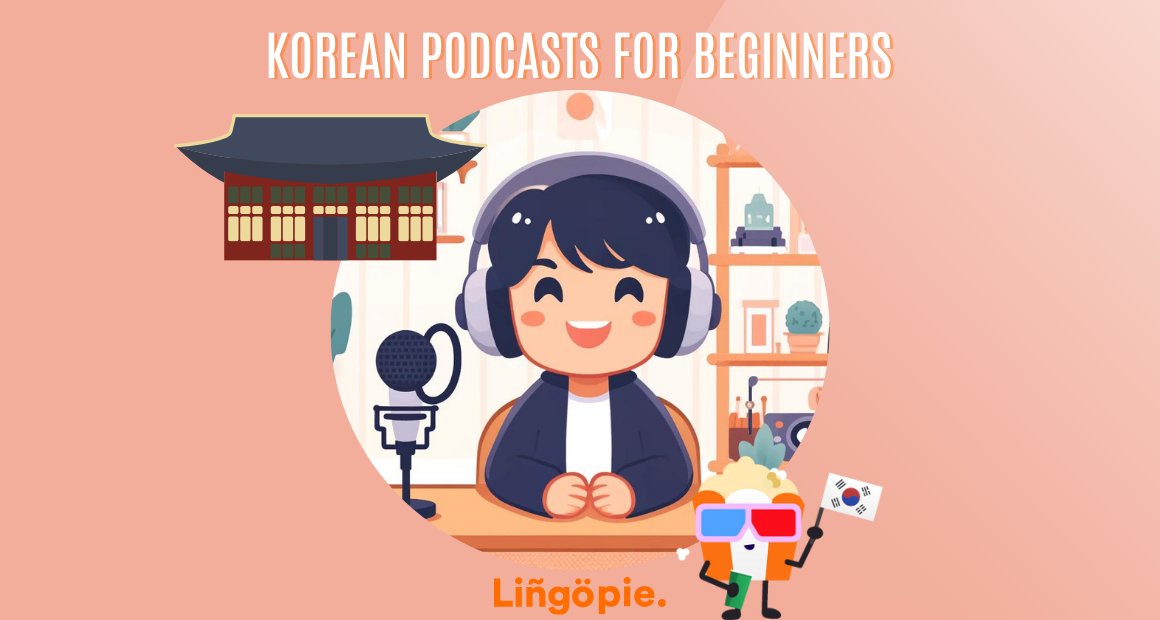Imagine dedicating hours each week to learning a new language, only to feel stuck in the same place despite your efforts. This is a common experience for many language learners, as highlighted by a recent survey which found that over 60% of language enthusiasts encounter a plateau within the first year of their studies.
What is a language learning plateau? It is that frustrating phase where language learning progress seems to halt, and no matter how much you study, you don't seem to get any better. It's a widespread issue that can demotivate even the most dedicated learners.
In this blog post, I'll talk about effective strategies to help you overcome your language learning plateau and continue advancing toward fluency!
Table of Contents
What Is A Language Learning Plateau?
Signs That You Are In The Language Learning Plateau
Why Do You Experience A Language Learning Plateau?
Genius Ways to Overcome Your Language Learning Plateau
1. Change Your Language Learning Routine
2. Immerse Yourself In The Target Language
3. Engage in Conversation Practice
4. Reflect and Review On Your Progress
5. Set SMART Goals
Final Words
What Is A Language Learning Plateau?

A language learning plateau is a phase in the language acquisition process where progress appears to stagnate. During this period, learners feel as though their skills are not improving despite continuous study and practice. This can be particularly disheartening, as the initial rapid gains give way to a sense of stagnation.

Signs That You Are In The Language Learning Plateau
Lack of Progress: Despite regular study, you notice no improvement in your language skills.
Repetition of Mistakes: You keep making the same errors in grammar, pronunciation, or usage.
Decreased Motivation: Frustration and a lack of enthusiasm replace your initial excitement for learning.
Stagnant Vocabulary: You struggle to learn new words or expressions and find yourself using the same limited vocabulary.
Difficulty in Understanding: Listening and reading comprehension seem to have reached a ceiling, with complex materials remaining out of reach.
Why Do You Experience A Language Learning Plateau?
Routine and Predictability: Relying on the same study materials and methods can lead to diminishing returns, as your brain becomes accustomed to the routine and stops being challenged.
Lack of Real-Life Practice: Limited opportunities to use the language in real conversations can hinder progress. Textbook exercises and classroom activities may not fully prepare you for dynamic, real-world interactions.
Insufficient Challenge: If your learning materials are not progressively challenging, your skills may stagnate. It's essential to gradually increase the difficulty of your studies to continue making progress.
Overemphasis on One Skill: Focusing too much on a single aspect of the language, like grammar or reading, at the expense of others, such as speaking and listening, can create an imbalance and slow overall progress.
Mental Fatigue: Continuous learning without adequate breaks or variety can lead to burnout, reducing your ability to absorb new information effectively.
Genius Ways to Overcome Your Language Learning Plateau

1. Change Your Language Learning Routine
Changing your study schedule and methods can inject new life into your language-learning journey. When you consistently follow the same routine, your brain becomes accustomed to the pattern, leading to decreased engagement and diminishing returns. By changing your routine, you can stimulate your brain in new ways, increasing retention and enthusiasm.
Study at Different Times of Day: If you usually study in the morning, try switching to evening sessions or vice versa. Different times of day can offer varying levels of alertness and creativity, helping you absorb information more effectively.
Change Study Locations: Instead of always studying at your desk or in your room, try different environments like a café, library, park, or even a different room in your house. New surroundings can break the monotony and provide a fresh perspective.
Change Study Durations: Mix up your study sessions by incorporating shorter, more frequent bursts of learning with longer, more in-depth sessions. For example, alternate between 15-minute focused vocabulary drills and 1-hour comprehensive lessons on different days.
Incorporate Different Learning Activities: Rotate between various activities such as listening to podcasts, watching movies or TV shows, reading books or articles, writing essays, and practicing speaking with a language partner. Diversifying your activities keeps your brain engaged and tackles different language skills simultaneously.
Use Different Study Tools: Experiment with different language learning tools and apps. For instance, if you’ve been using a particular app for vocabulary, try switching to flashcards, or use online forums and chat groups to practice writing and conversation.
2. Immerse Yourself In The Target Language

Immersion in the target language is one of the most effective ways to overcome a language learning plateau. When you surround yourself with the language, you create a natural learning environment that enhances comprehension, retention, and practical usage. Immersion helps bridge the gap between theoretical knowledge and real-world application, making the language feel more intuitive and accessible.
Watching Movies and TV Shows: Choose films and series in the target language, preferably with subtitles in that language or none at all. This not only improves your listening skills but also exposes you to colloquial expressions, cultural nuances, and different accents.
Listen to Music: Create playlists of songs in the target language. Pay attention to the lyrics, try to understand them, and even sing along. Music can be a fun way to improve pronunciation and expand your vocabulary.
Read Books and Articles: Select books, magazines, or online articles in the target language. Start with simpler texts like children’s books or graded readers, and gradually move on to more complex materials. Reading helps with vocabulary building, comprehension, and grammatical structures.
Have Conversations with Native Speakers: Find opportunities to converse with native speakers, either in person or through language exchange platforms like Tandem or HelloTalk. Regular conversations with native speakers improve fluency, pronunciation, and the ability to think in the target language.
Participate in Cultural Activities: Attend cultural events, join language clubs, or participate in cooking classes, dance lessons, or other activities conducted in the target language. Engaging in cultural activities provides context and makes the language-learning process more enjoyable and meaningful.
Don't Know How To Immerse Yourself In Your Target Language? Try Lingopie!
Who says learning can’t be fun? Grab some popcorn and immerse yourself in foreign films or binge-watch TV shows. That's the mission of Lingopie, making language learning fun and immersive!
Lingopie makes learning a new language fun and effective by using real TV shows, movies, and documentaries. It offers interactive subtitles, so you can click on any word to get an instant translation and pronunciation.
The platform also personalizes content based on your progress, making sure you're always engaged. Words you click on are saved to flashcards for easy review, and there are quizzes to help you remember what you've learned. Plus, by watching different genres, you get a feel for the culture and language in real-life situations.
Download Lingopie from the App Store or Play Store now and get a FREE 7-day trial!
3. Engage in Conversation Practice

Real-life practice through conversation is crucial for language learning because it allows you to apply what you've learned in practical, spontaneous situations. Speaking with others helps reinforce vocabulary, improve pronunciation, and build confidence in your language abilities. Conversations also expose you to various dialects, idiomatic expressions, and cultural nuances that are often absent in textbooks.
Language Exchange Partners: Find a language exchange partner who is a native speaker of your target language and wants to learn your native language. This mutually beneficial setup allows you both to practice and correct each other's mistakes in a supportive environment. You can find partners through websites and apps like Tandem, HelloTalk, or local language exchange meetups.
Conversation Clubs: Join a conversation club where members meet regularly to practice speaking the target language. These clubs often have themed discussions, games, and activities designed to make conversation practice engaging and fun. Look for local clubs in community centers, libraries, or universities, or join online clubs through platforms like Meetup or Facebook groups.
Online Language Tutors: Hire an online tutor who can provide structured conversation practice tailored to your level and goals. Tutors can offer personalized feedback, correct mistakes in real time, and introduce new vocabulary and expressions. Websites like iTalki, Preply, and Verbling connect learners with qualified tutors from around the world.
Social Media and Online Communities: Engage with native speakers and other learners in online forums, social media groups, and language learning communities. Participating in discussions, posting questions, and responding to others’ comments can provide valuable conversational practice. Platforms like Reddit, Discord, and specialized language learning forums are excellent places to start.
Role-Playing Scenarios: Practice conversation by role-playing different scenarios with a friend or tutor. This method helps simulate real-life situations, such as ordering food at a restaurant, asking for directions, or discussing hobbies, which can improve your fluency and prepare you for actual interactions.
4. Reflect and Review On Your Progress

Reviewing past material and reflecting on your progress is crucial for language learning as it reinforces what you've learned and helps identify areas that need improvement. Regular reflection ensures that you retain foundational knowledge, avoid recurring mistakes, and stay motivated by recognizing your achievements. It also provides a clearer sense of direction, helping you set more effective goals and strategies for continued improvement.
Keep a Language Journal: Maintain a journal where you record new vocabulary, grammar rules, phrases, and reflections on your learning experiences. Write about your daily practice, challenges, and breakthroughs. Reviewing your journal entries periodically can help you see your progress over time and identify patterns in your learning.
Periodic Self-Assessments: Regularly assess your language skills to track your progress and pinpoint areas that need more attention. This can include self-administered quizzes, recording yourself speaking and comparing it over time, or using online assessment tools. Reflecting on these assessments helps you understand your strengths and weaknesses.
Revize Old Lessons: Go back to previous lessons, exercises, and study materials. Repetition helps reinforce knowledge and ensures that foundational elements are solid. Revisiting old materials can also provide a confidence boost as you realize how much easier they have become compared to when you first encountered them.
Track Your Progress with Milestones: Set specific, measurable milestones for your language learning journey, such as mastering a set number of vocabulary words, being able to hold a 10-minute conversation, or understanding a particular text. Reflect on your achievements and adjust your goals as you reach these milestones.
Use Review Apps and Tools: Utilize language learning apps and tools designed for spaced repetition and review, such as Anki or Quizlet. These apps help ensure that you regularly review past material at optimal intervals, which enhances long-term retention.
5. Set SMART Goals

1. Vocabulary Acquisition:
- Specific: "Learn 10 new vocabulary words related to food and cooking every week."
- Measurable: "Create flashcards and review them daily, tracking correct answers."
- Achievable: "Allocate 15 minutes each day for focused vocabulary study."
- Relevant: "Enhance vocabulary to improve daily conversation skills."
- Time-bound: "Review all new words at the end of each week and take a quiz."
2. Speaking Practice:
- Specific: "Join a conversation club and participate in weekly discussions."
- Measurable: "Track the number of speaking sessions and the duration of each session."
- Achievable: "Prepare a list of topics and questions to discuss in each session."
- Relevant: "Develop fluency and confidence in speaking."
- Time-bound: "Attend 8 conversation club meetings over the next two months."
3. Comprehension Skills:
- Specific: "Watch one episode of a TV show in the target language without subtitles each week."
- Measurable: "Summarize the episode in a journal, noting new vocabulary and phrases."
- Achievable: "Choose a show that matches your current comprehension level."
- Relevant: "Improve listening skills and understanding of native speakers."
- Time-bound: "Complete this exercise every week for three months."
Final Words
Overcoming a language learning plateau requires dedication and strategic effort. You've explored different strategies like changing study routines, immersing yourself in the language, engaging in conversation practice, reflecting on progress, and setting SMART goals.
Remember, plateaus are natural and signify progress. By implementing these strategies, you can reignite your motivation and steadily advance toward fluency!





![How to Learn French Fast [Guide]](https://lingopie.com/blog/content/images/size/w1200/2024/06/Spanish-1-6.png)



